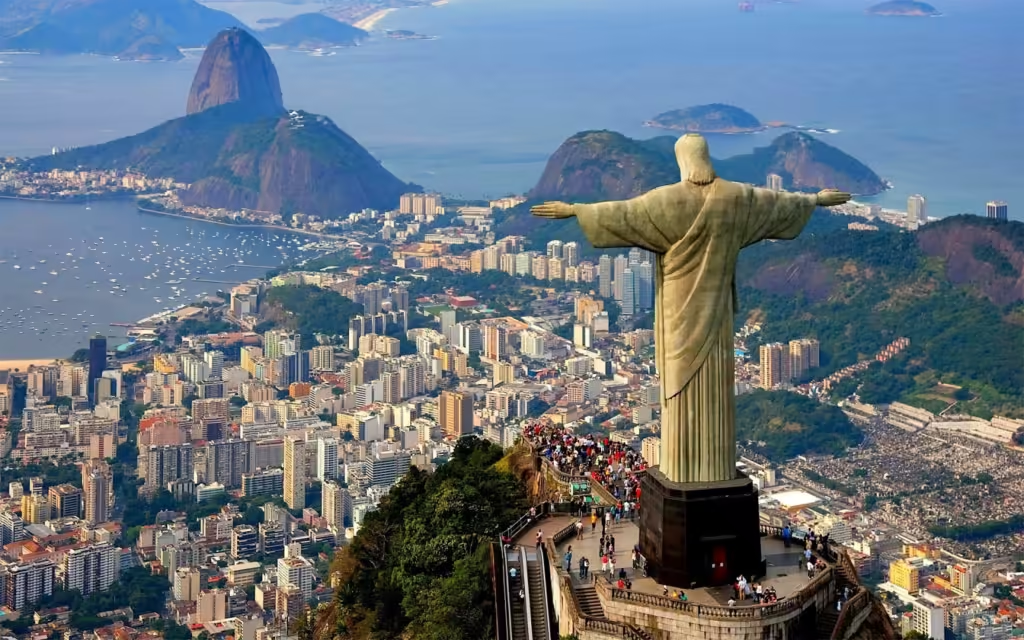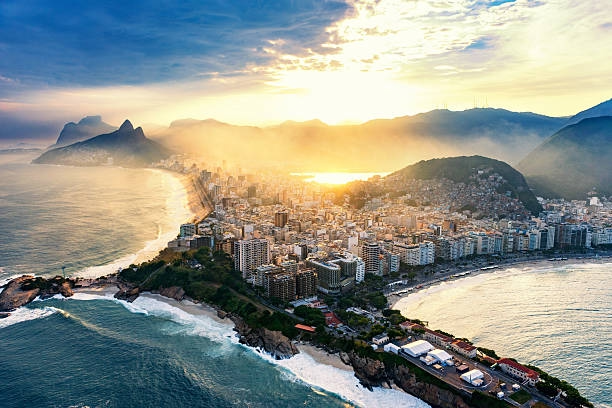Location and Historical Roots
Where is Rio de Janeiro?: Nestled along the south-eastern coast of Brazil, Rio de Janeiro—affectionately known as the “Cidade Maravilhosa” (Marvellous City)—is a vibrant metropolis where samba beats echo through the streets.
History: Founded by the Portuguese in the 16th century, Rio became a hub for mineral exports from gold and diamond mines. Its name, meaning “January River,” reflects the navigators’ mistaken belief that the bay was the mouth of a river. From colonial capital to independent Brazil, Rio’s history is etched in its architecture and culture.
Climate and Seasons
Weather Notes: Rio experiences a tropical savanna climate. Here’s what to expect:
Summer (December to March): Hot, muggy days with highs around 30°C (86°F). Perfect for beach outings!
Winter (May to October): Cooler temperatures (around 20°C/68°F) and occasional chilly nights. Pack layers.
Getting There and Getting Around
Arrival: Fly into Galeão International Airport (GIG) or Santos Dumont Airport (SDU). Taxis and shuttles are readily available.
Within the City: Explore iconic spots like Copacabana, Ipanema, and Lapa. Don’t miss the incline railway ride to Christ the Redeemer!
Must-See Tourist Attractions

Christ the Redeemer (Cristo Redentor): Atop Corcovado Mountain, this iconic statue welcomes you with open arms. The views? Breathtaking.
Sugarloaf Mountain (Pão de Açúcar): Ride the cable car for panoramic vistas of Rio’s coastline and Guanabara Bay.


Copacabana and Ipanema Beaches: Sunbathe, sip coconut water, and watch the world go by.
Culture and Cuisine
Samba Nights: Dance to samba rhythms at Rio Scenarium or explore Lapa’s bohemian vibe.
Foodie Adventures: Try Arroz com Camarão (shrimp rice), Feijoada (hearty bean stew), and Carne de Sol (sun-dried beef). Pair it with caipirinhas!
Why Visit Rio?
Conclusion: Rio de Janeiro isn’t just a city; it’s a sensory explosion. From Carnival’s vibrant chaos to sunsets over Sugarloaf, it’s a place where life dances to its own rhythm.



